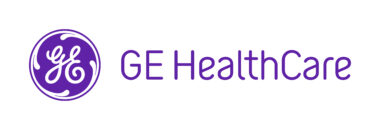Cleaning shared medical equipment at least once a day—even with a disinfectant wipe—can significantly reduce infections in hospitals and possibly save lives, new research shows.
The finding is based on results from the CLEEN study, a randomised control trial led by Professor Brett Mitchell from Avondale University in a hospital on the Central Coast of New South Wales, with colleagues including fellow chief-investigator and Monash University Professor Philip Russo.
Published in The Lancet Infectious Diseases, the study introduced an intervention that consisted of additional cleaning, education on techniques and an audit of and feedback on cleanliness.
Dedicated cleaners, rather than healthcare workers usually responsible for cleaning, completed three extra hours of cleaning each day on shared equipment such as commodes, drip stands and walking aids.
To measure cleanliness, the researchers placed fluorescent marker gel dots on the surface of the equipment. When the dots dried, they became visible only under special light and resisted dry abrasion, which meant they could be removed only by a thorough clean.
“We identified relatively low levels of cleaning thoroughness during the control phase,” the researchers wrote, which suggested “routine cleaning is either not performed or is ineffectively performed.”
Before the intervention, the hospital removed about 25 per cent of the dots. After the intervention it was 65 per cent – a 35 per cent reduction in all healthcare-associated infections.
The finding is important because 165,000 infections—the most comprehensive estimate in decades according to previous research by Professor Mitchell and other colleagues—occur in Australian hospitals each year. With infections not only costing money but taking lives, the burden is significant.
Professor Mitchell said the findings supported more—not less—cleaning in hospitals. He said before the CLEEN study, there were about 100 more infections before the intervention. “A proportion of these would have had major complications resulting from their infection, including death,” he said.
Professor Russo, who is Director of Research at Monash Nursing and Midwifery, said the study demonstrated the critical role of dedicated cleaners. “Infection prevention relies on multiple interventions, not just one. We now have strong evidence that cleaning can save lives,” he said.
Despite the associated increase in morbidity, mortality and antimicrobial resistance—not to mention length of stay—strategies to prevent healthcare-acquired infections are informed by low-quality evidence.
Professor Mitchell is aware of only six high-quality randomised control trials around cleaning and healthcare-acquired infections, “and we’ve published two”.
He said there were so few because control of factors that could contaminate results was difficult and the number of participants needed to build confidence was large. Overcoming the challenges requires significant funding—Professor Mitchell used a $1.5 million grant from the National Health and Medical Research Council acknowledging his emerging leadership as an investigator.
Trial coordinator Dr Kate Browne, from Avondale University, said it was a worthy investment. “Robust, evidence-based trials are the foundation of modern medicine,” Dr Browne said. “The data generated helps inform clinical policies and guidelines that ultimately improve the quality of patient care.”
Professor Mitchell and Dr Browne are first and senior authors of the paper. They worked with colleagues, including Professor Russo, from Avondale and Monash Universities, Queensland University of Technology and clinicians from the Central Coast Local Health District and Alfred, Cabrini and Monash Health.
For media enquiries please contact:
Monash University
Cheryl Critchley – Media and Communications Manager (medical)
E: [email protected]
T: +61 (0) 477 571 442
For more Monash media stories, visit our news and events site
For general media enquiries please contact:
Monash Media
E: [email protected]
T: +61 (0) 3 9903 4840
***ENDS***


